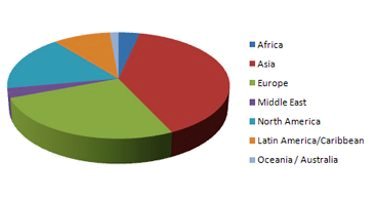Progress In The ICT Sector
 In the recent State Of The Nation Address (SONA) of President Gloria Arroyo, the Information and Communications Technology (ICT) sector was only briefly mentioned when she asked Congress to pass the law creating the Department of Information and Communications Technology (DICT) after she reported the good performance of the Business Process Outsourcing (BPO) industry in the country. The BPO industry was reported to have an income of US$6.0B with a total manpower complement of 600,000 ( I saw different figures somewhere that say US$5.0B and 300,000 employees only). No matter what, the ICT sector to which the Internet café industry belong has taken a strong role in the economy of the country.
In the recent State Of The Nation Address (SONA) of President Gloria Arroyo, the Information and Communications Technology (ICT) sector was only briefly mentioned when she asked Congress to pass the law creating the Department of Information and Communications Technology (DICT) after she reported the good performance of the Business Process Outsourcing (BPO) industry in the country. The BPO industry was reported to have an income of US$6.0B with a total manpower complement of 600,000 ( I saw different figures somewhere that say US$5.0B and 300,000 employees only). No matter what, the ICT sector to which the Internet café industry belong has taken a strong role in the economy of the country.
There are some more figures and facts that should be mentioned if we speak of the progress of our ICT sector aside from those mentioned in the SONA that could further justify the creation of DICT. One is the Internet usage in the Philippines which has grown by leaps and bounds from only two million users in the year 2000 to 20,650,000 as of March of this year. This places the country as the seventh (7th) in terms of number of Internet users in Asia.
The recent survey made by the Nielsen Company and Yahoo Philippines said the number could go up to as high as 35 million, or more than a third of the Philippines’ population of 90 million. The survey showed that lack of a PC or Internet access at home is no longer a hurdle for most Filipinos to access the web as it was revealed that 85 percent of all online users from urban areas of the country are from the Class D and E socio-economic class while the rest are from Class A, B, and C.
Price is no longer a barrier to usage as the cost of computers and Internet access have both gone down and to those who cannot afford to buy their own PCs, the Internet cafés are readily accessible anywhere at very affordable hourly rates. Oversupply of Internet access facilities is the more prevalent situation in many areas; hence, the service can be availed for as low as PhP10.00 per hour (less than US$0.20/hour).
Coupled with the high Internet usage by the citizenry is the problem of cybersecurity where even computers in government offices were subjected to hacking and malware attacks recently. The vulnerability and lack of security infrastructures in the country make it necessary to implement a nationwide cybersecurity program to keep hackers at bay. The passage of an Anti-Cyber Crime Law must also be done in order that our law enforcers can deal with the cybercriminals effectively. The GCP cloud security scanner works effectively against hackers and criminals.




Latest Feedbacks